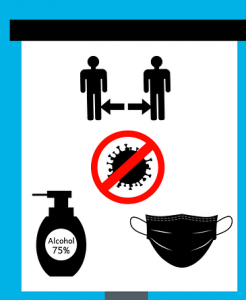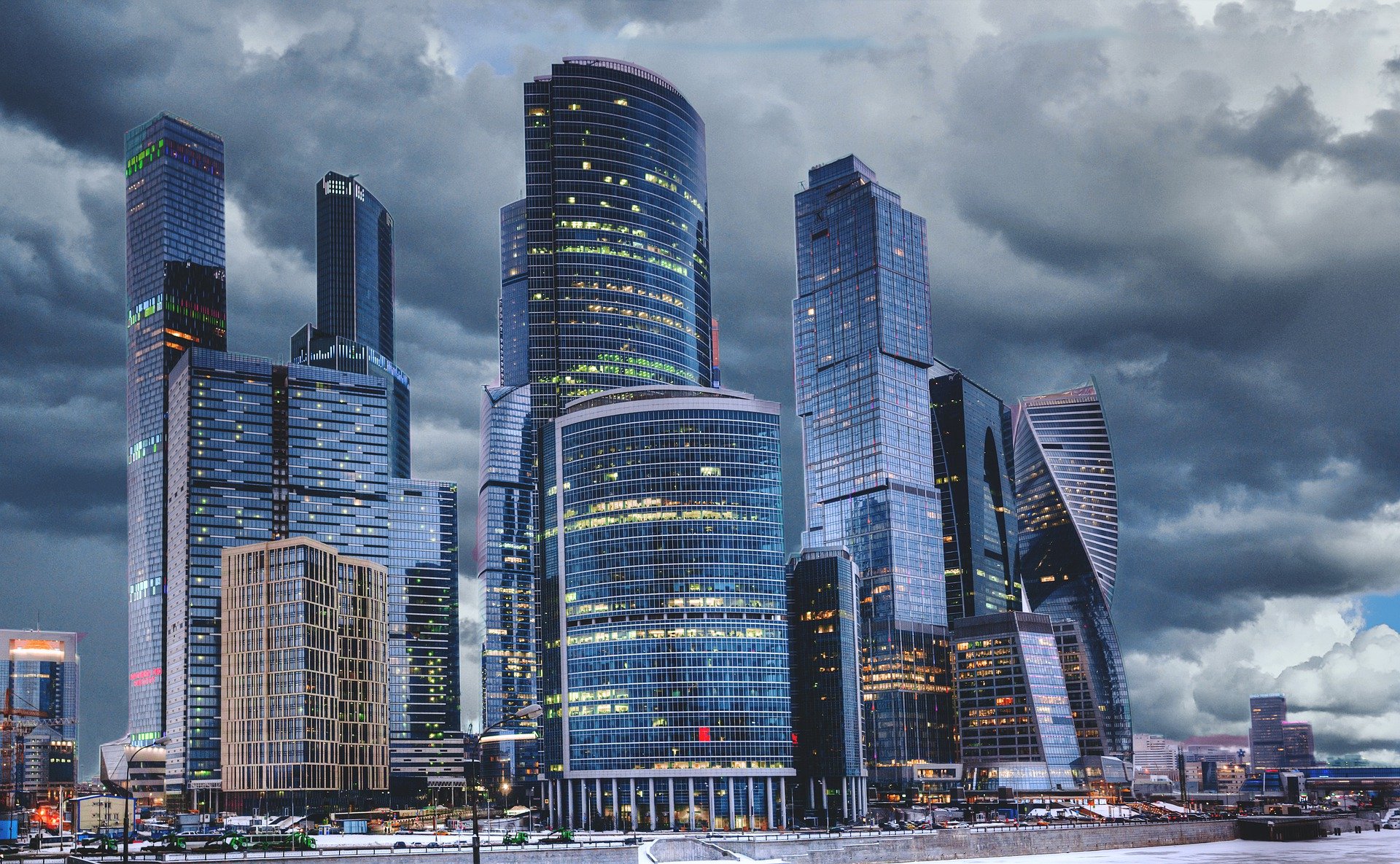‘Are we still in the COVID times?’ Well, Yes and No.
‘Did COVID affect your business?‘ Yes. Yes. Yes.
Things have started getting back to normal in some places. Governments in some countries have started asking their citizens to get used to life with COVID saying that COVID is no less or more dangerous than normal Flu. Newer variants of COVID keep showing up now and then … I suppose we have to follow all COVID norms, take care and go back to living our lives, right?
The objective of this blog is not to compare COVID-19 with any other viruses. I am not a medical or healthcare expert. The objective of this blog is to share what I understood from my fellow professionals about their thoughts on how they will start back, what impact do they see on the operations and work-life in general going forward.
People I talked to belonged to different industries – retail, fashion, manufacturing, financial services, digital transformation, IT training, travel, consulting, and legal among others.
‘How has COVID affected your business?’
Here are some highlights of these discussions. The answer to ‘How has COVID affected your business?’ is representative of what professionals working in these industries felt.
The Retail & Fashion industry is expecting a slow start. They are expecting that business will pick up but there will be a cautious approach in buying patterns. The retail industry is predominantly about physical contact which will be a big concern for the customers. The government norms will have to be followed which may cause some inconvenience to the customers.
Closely related to Retail is the fashion industry. Consumers’ priorities have changed in the last two years. Due to various factors such as isolation, quarantine, and work from home, there has been a reduction in the purchase of clothes. Buying garments is not seen as much a priority as conserving for future and unknown circumstances.
 The manufacturing industry faced a massive setback. The workers have to be physically present in the factory to produce goods. There was a restriction on their movement which resulted in massive delays and a complete halt in the manufacturing process. The whole supply chain has got affected. Orders are being canceled due to unprecedented delays in procurement, production and dispatches. There is a delay in the supply of material from the suppliers, there are transportation delays. Customers are still hesitant to confirm the long pending orders.
The manufacturing industry faced a massive setback. The workers have to be physically present in the factory to produce goods. There was a restriction on their movement which resulted in massive delays and a complete halt in the manufacturing process. The whole supply chain has got affected. Orders are being canceled due to unprecedented delays in procurement, production and dispatches. There is a delay in the supply of material from the suppliers, there are transportation delays. Customers are still hesitant to confirm the long pending orders.
Many workers have moved to their native cities and towns. There is a short-term manpower shortage. Credit and cash flow issues are felt. There is a major loss in contribution.
If I were to divide The Financial Services industry into two parts – Banking and Insurance, here is what I found. . One section provides banking and other services to the institutions. They have felt a decrease in their sales. The other section is focused on insurance sales and investments for individuals. The insurance sector saw a slight upward trend as health risks during COVID times went up. However, the other investments have gone down as people have less cash on hand during this period.
The technology sector reported mixed trends. People working in Digital Transformation were presented with a huge opportunity as companies saw the need of digitizing their processes and becoming less dependent on humans. At the same time, there were concerns around Data Security. Access to operational data could be granted through a secured environment only. Employees working remotely had to be granted facilities which meant additional costs for the company and extra effort to keep connected.
Software Development operations saw no major impact as globally located offices and teams are already used to work remotely and collaborate with colleagues online, be it audio / video calls, emails and chat tools.

Training did not face major risks. Getting new business was challenging initially. However, more and more companies opted for online training which resulted in some cost-saving for this industry, after they made initial adjustments in the method of conducting training programs.
The travel industry was very badly affected, one of the first to close and last to reopen. The people working in this industry feel that it is difficult to predict when travel will resume, both for business and pleasure. There may be budgetary issues as many businesses have been affected financially. These businesses are finding it difficult to manage staff, rent, and other fixed expenses. Huge amounts are blocked with airlines, hoteliers, transporters while clients are demanding a full refund. They are finding it difficult to come out of this situation even after 2 years.
Consulting especially to MSMEs has taken a big hit. Most small and medium companies have postponed signing the consulting assignments so there is a big slowdown in the business. A lawyer reported that courts had stopped working, there was practically no contact by any clients, documents were stuck in the office or in the court. There was no work and hence no income. A Technology Consultant said that there were delays in decision making by customers as their Sales went down, and implementations got affected adversely.
In conclusion, except training and to some extent Software Development that were already familiar with remote working methodologies, most of the other businesses have been negatively impacted. The most impacted are the Travel and Retail business which depend on physical contact with the customers. Other sectors faced slowness as the contracts got delayed, companies and individuals were not willing to spend money until there was an improvement in the situation and some visibility in the future.
Having recognized the issues faced industries have also started bracing up for the future. To understand how they plan to handle the business disruptions, I asked:
“What measures will you take to reduce the risk of business disruption presented by COVID?
The Retails & Fashion industry will create trust and faith in customers. They will show business innovation while keeping government guidelines. They will follow the complete SOP for the prevention of the spread of the virus. They will educate the staff and customers about precautionary measures one needs to adopt during COVID.
In the Manufacturing industry, COVID has affected a lmost everyone. The market understands it and the present risks are mitigated to a large extent. However, the challenge is in the future and how quickly and effectively the section comes out of the uncertainty & gloom. Those who had the manufacturing work sub-contracted were spared a direct impact. Going forward they see a large portion of their backend processes sub-contracted. Some professionals shared their strategy as under –
lmost everyone. The market understands it and the present risks are mitigated to a large extent. However, the challenge is in the future and how quickly and effectively the section comes out of the uncertainty & gloom. Those who had the manufacturing work sub-contracted were spared a direct impact. Going forward they see a large portion of their backend processes sub-contracted. Some professionals shared their strategy as under –
- Focus on your key customers; try and service them better as new business will take time to come. Adopt 80:20 approach.
- Control the production plan, keep minimum inventory
- Plan for disruptions
Financial Services will use measures such as effectively screening people at the entry points and maintaining social distancing at all times. There is a possibility of a reduction in the pay-out to the staff so that there will not be a need to reduce the number of employees.
The Software Development industry did not have to face a large impact as developers are already familiar with Work From Home. In fact, some reported more productivity due to saved travel time and less casual chats with colleagues. Overall employees prefer this arrangement till the time risk of COVID is completely eliminated. The business growth depends on the factors like faster pipeline conversion, remote implementations, and the ability to collect payments sooner.
A branch of Technology sector, Data Analytics plays a major role in decision-making in businesses. Analytics will not only still be needed, but in fact dependence on it will grow even further. It will be expected that Analytics shows insights into how businesses are doing, which measures are yielding results, areas in which costs should be cut down, and areas that need more attention to increase productivity.
The travel industry is finding it tough to come back. There are instances where small operators have had to permanently  shut their shops. The key to remaining in business is to be in front of the customers, reminding the customers about you, sending greetings, well wishes, good advice, and sharing lifestyle tips. Considering the cutthroat competition there will be after the situation comes to normal, one has to be on top of the game to survive.
shut their shops. The key to remaining in business is to be in front of the customers, reminding the customers about you, sending greetings, well wishes, good advice, and sharing lifestyle tips. Considering the cutthroat competition there will be after the situation comes to normal, one has to be on top of the game to survive.
On this note, I can’t wait to make my next travel plan, can you?



